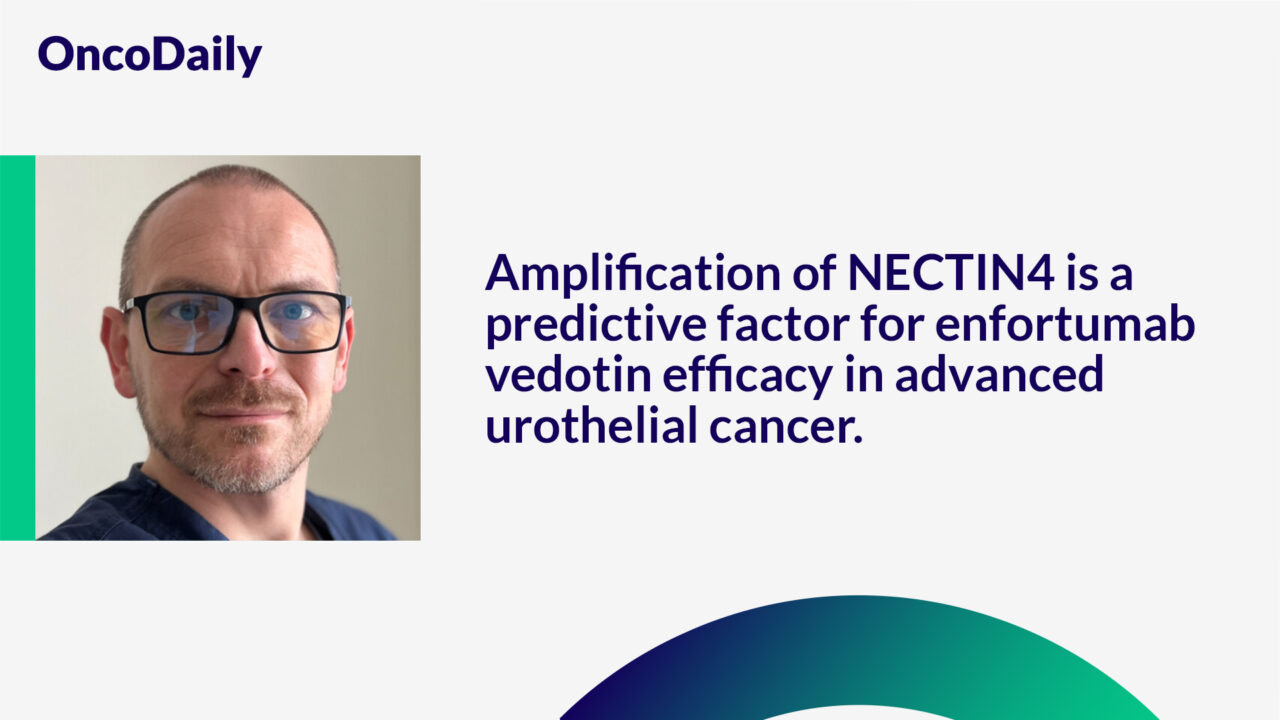Piotr Wysocki recently shared on LinkedIn:
“Kluemper et al. published results of a study evaluating NECTIN4 amplification in solid tumors and its predictive role in advanced urothelial cancer (UC) patients undergoing treatment with enfortumab vedotin (EV).
In a population of 108 advanced UC patients undergoing EV-based treatment, the amplification of NECTIN4 was associated with a high (96%) probability of objective responses. In contrast, in non-amplified patients, the ORR was 32%. In multivariable Cox analysis adjusted for age, sex, and Bellmunt risk factors, NECTIN4 amplifications led to a 92% risk reduction for death (HR=0.08; 95%CI 0.02 to 0.34).
NECTIN4 amplifications were not associated with outcomes in UC patients not treated with EV, demonstrating NECTIN4 uselessness as a prognostic factor.
The predictive role of NECTIN4 amplifications may extend far beyond urothelial cancer. This genomic phenomenon is often observed in other tumor types like breast or lung cancer, where approx. 5-10% of patients demonstrate NECTIN4 gene copy number variations.”

Authors: Niklas Klümper, Ngoc Khanh Tran, Stefanie Zschäbitz, Oliver Hahn, Thomas Büttner, Florian Roghmann, Christian Bolenz, Friedemann Zengerling, Constantin Schwab, Dora Nagy, Marieta Toma, Glen Kristiansen, Hendrik Heers, Philipp Ivanyi, Günter Niegisch, Camilla Marisa Grunewald, Christopher Darr, Arian Farid, Katrin Schlack, Mahmoud Abbas, Can Aydogdu, Jozefina Casuscelli, Theresa Mokry, Michael Mayr, Dora Niedersüß-Beke, Steffen Rausch, Dimo Dietrich, Jonas Saal, Jörg Ellinger, Manuel Ritter, Abdullah Alajati, Christoph Kuppe, Joshua Meeks, Francisco E. Vera Badillo, J. Alberto Nakauma-González, Joost Boormans, Kerstin Junker, Arndt Hartmann, Viktor Grünwald, Michael Hölzel, Markus Eckstein
Journal of Clinical Oncology – The Journal of Clinical Oncology is a peer-reviewed medical journal published 3 times a month by the Lippincott Williams & Wilkins. It covers research on all aspects of clinical oncology. The journal was established in 1983 and the editor-in-chief is Jonathan W. Friedberg. JCO’s Impact Factor is 45.3 as reported by Clarivate in its 2022 Journal Citation Reports.
Source: Piotr Wysocki/LinkedIn
Piotr Wysocki leads the Clinical Oncology Department at University Hospital and the Faculty of Oncology at Jagiellonian University-Medical College in Krakow, Poland.
He has supervised four PhDs, trained numerous oncology residents, and contributed to national guidelines for genitourinary and breast cancer treatment. As an advisor to the Polish Ministry of Health, he shapes the national cancer strategy.
Wysocki established early-phase clinical study units and specializes in systemic treatment for breast, gynecologic, and genitourinary cancers. His clinical expertise spans the systemic treatment of breast, gynecologic, and genitourinary cancers, with a focus on developing innovative metronomic chemotherapy-based therapies for advanced cancer patients who have undergone prior treatment.
His scientific pursuits encompass the development and utilization of Immunopheresis in solid tumor treatment and the management of immune-related adverse events. He has led over 70 international clinical studies and published extensively in cancer research. Since 2023, he has been a member of the American Society of Clinical Oncology International Affairs Committee.


